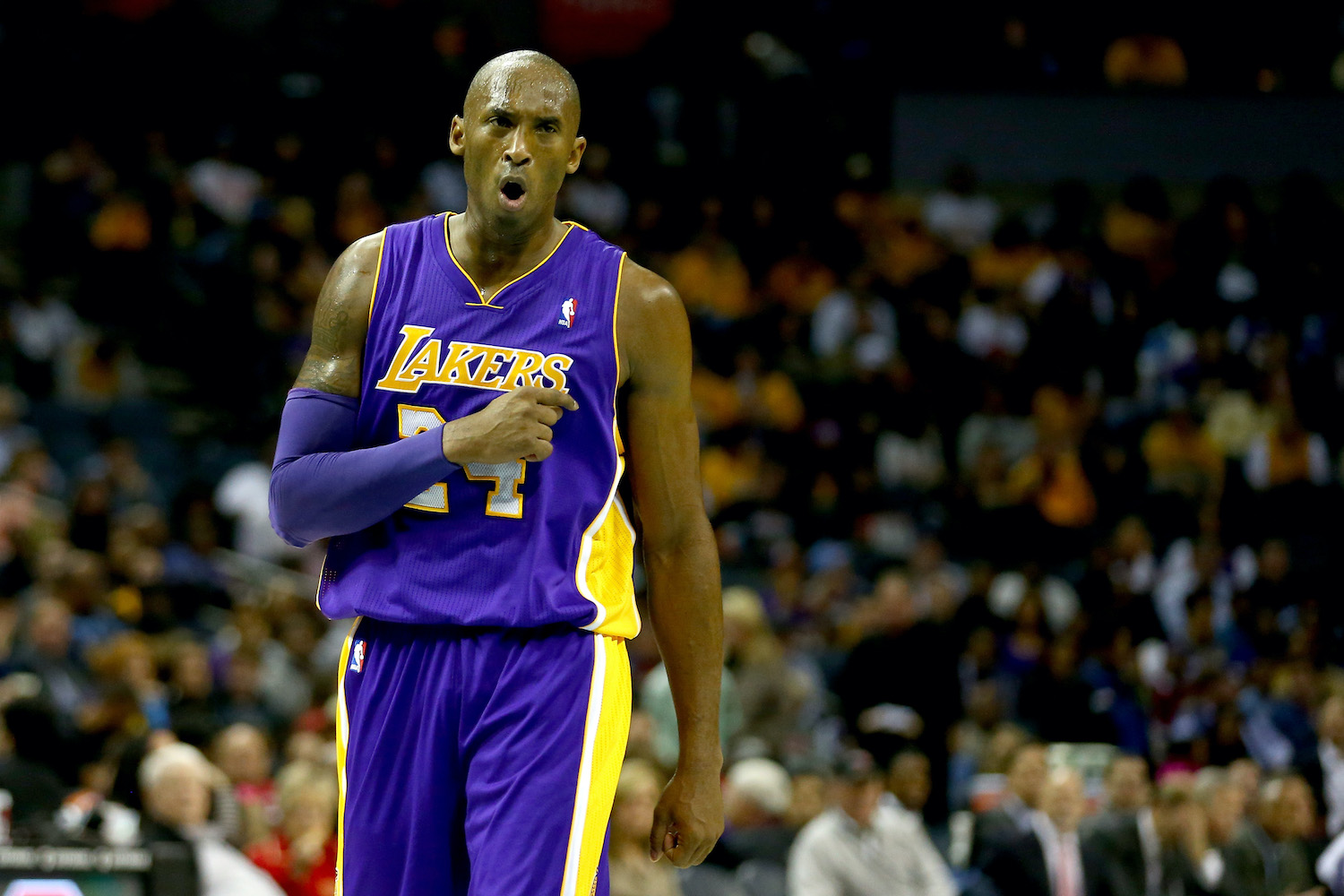NBA
Kobe Bryant Learned an Important Lesson About Hard Work From His High School English Teacher Long Before Creating Mamba Mentality

During his time in the NBA, Kobe Bryant established a reputation as a pro’s pro. The Lakers guard was known as an incredibly hard worker who held himself to high standards. He even created “Mamba Mentality” as a way to explain his pursuit of greatness.
Before Bryant ever found fame and fortune in the NBA, however, he already had learned a valuable lesson about hard work. That wisdom wasn’t passed down from a basketball coach or his famous father, though. Instead, it came from an English teacher.
Kobe Bryant created a lasting legacy through his Mamba Mentality
For a generation of basketball fans, Kobe Bryant will stand tall in basketball lore as a Michael Jordan-like figure. Similar to His Airness, part of that legacy will consist of an unceasing work ethic in pursuit of on-court greatness.
During his time in Los Angeles, Bryant adopted his Black Mamba persona. While the guard had always been willing to push himself and his teammates to be their collective best, his new alias helped crystalize that work ethic into a clean package known as Mamba Mentality.
Over the years, plenty of anecdotes emerged illustrating just how far Kobe was willing to go in pursuit of NBA greatness. The Lakers guard read the referee’s handbook, allowing him to know when he could get away with a bit of extra contact on the defensive end of the floor. He also carried a DVD player on the road — there was no excuse to avoid film study — and was known to put himself through all sorts of demanding workouts.
Eventually, Bryant officially defined Mamba Mentality and shared it with the world.
“Mamba mentality is all about focusing on the process and trusting in the hard work when it matters most,” he told Amazon Book Review. “It’s the ultimate mantra for the competitive spirit.”
Learning a valuable lesson from a high school English teacher
Given what we know of his basketball career, it’s easy to picture Bryant wearing the Lakers’ iconic purple and gold jerseys. Before he ever landed in Hollywood, though, the guard made a name for himself on the opposite side of the country.
Kobe cut his teeth at Lower Merion High School, located just outside of Philadelphia. While he showed plenty of talent — Bryant joined the varsity squad as a freshman and, by the time he graduated, had earned national recognition — the teenager also spent his fair share of time in the classroom. For all of his athletic success, one particular English lesson from Mr. Frick stuck with him.
“He had a great quote: ‘Rest at the end, not in the middle,’” Bryant told Lewis Howes on The School of Greatness podcast (H/T CNBC). “That’s something I always live by.”
While Kobe never connected the dots himself, it’s easy to see the connection between that early lesson and Mamba Mentality. If nothing else, we know that Kobe kept working, even after he retired from pro basketball.
Whatever Kobe Bryant did, his efforts paid off
From a cynical perspective, you could argue that Bryant’s Mamba Mentality was simply part of a branding effort. Every player works hard, albeit without a catchy name and an eponymous book. With that being said, though, whatever Kobe was doing behind the scenes certainly paid off.
As mentioned above, the guard established himself as a star in high school before making the jump directly to the NBA. While things didn’t come easily in the pros — the guard didn’t become a regular starter until his third season in the Association — Bryant eventually hit his stride. He claimed three consecutive titles with the Lakers from 2000 through 2002 and only kept improving. At the height of his powers, Bryant stood tall as one of the NBA’s top scorers and, of course, fiercest competitors.
While his stats speak for themselves, perhaps the biggest testament to the guard’s success is his place in popular culture. Bryant idolized Michael Jordan and wanted to follow in his footsteps; to some extent, he did just that. If you were a young basketball fan during the 2000s, the Lakers star was probably your cultural touchstone and who you associated with on-court greatness. There’s a reason an entire generation grew up yelling “Kobe” as they tossed things into the garbage can.
Based on his raw talent, Bryant probably would have found at least some success in the professional ranks. His work ethic, however, was part of the entire package that earned him a place in basketball lore.
Somewhere, Mr. Frick probably appreciated that his former pupil took his lesson to heart.
RELATED: Kobe Bryant Made $323 Million in the NBA but Still Believed That He Was Underpaid











